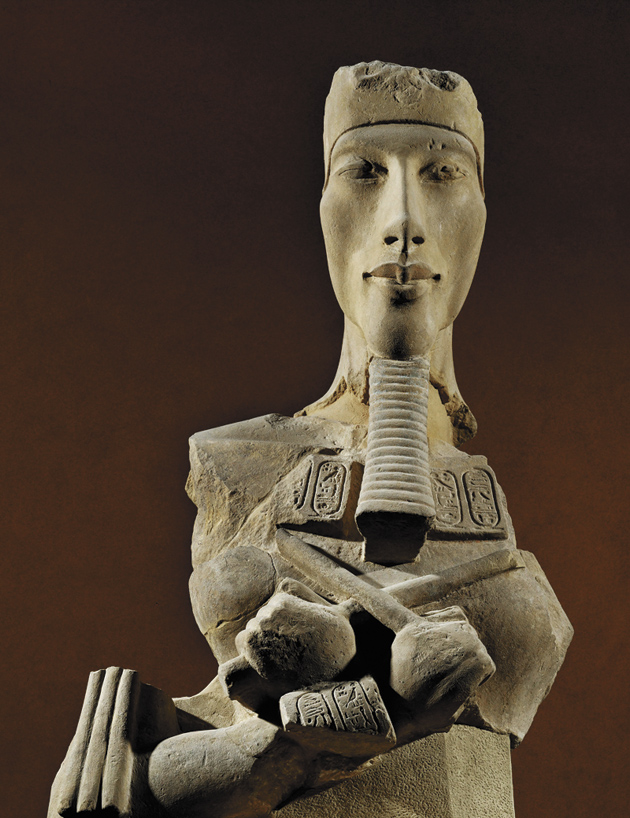In response to:
A Black and Disgraceful Site from the May 28, 2009 issue
To the Editors:
I was pleased to see Jonathan Freedland’s review of David Vine’s book Island of Shame [ NYR, May 28]. As a son of the late Stuart Barber, the civilian naval planner who dreamed up the “Strategic Island Concept” and who identified Diego Garcia as a desirable base site, I do want to mention the surprising second chapter of my father’s involvement. It might serve as a warning of what can happen when you entrust the realization of an idea to powerful and potentially ruthless advocates.
Throughout the entire political and diplomatic campaign by the US military to secure approval for a base at Diego Garcia, my father became aware that his proposal for a small intelligence-gathering post was being inexorably inflated into something he believed was inappropriate. He was not aware, however, of what was happening to the islanders. In fact he was among those being fed the fictions that there was no population on Diego Garcia beyond a small number of transient plantation contract laborers, and that inhabitants would be evacuated from that island alone.
In the late 1980s he showed me a report he had just read by the Minority Rights Group. It was rare for my very reticent father to draw my attention to something in this way. He had just learned the truth of what had happened to the inhabitants of these islands; it was suddenly obvious to him that a great injustice had been done. He believed it was probably unnecessary to evacuate the entire island of Diego Garcia, and certainly unnecessary to evacuate the other islands. He was shocked at the callousness and cruelty of how these evacuations were conducted. Now with the damage done, he believed it was imperative for the US and British governments to make substantial reparations.
My father tried everything he could think of to draw attention to this injustice. He wrote a series of letters to The Washington Post, a US Navy admiral, Human Rights Watch, and the British embassy. All these attempts failed to generate any interest or substantive responses. I share Freedland’s hope that Vine’s account will finally bring this story to the attention of someone who is able and willing to bring some justice to the Chagossians.
Richard Barber
Brooklyn, New York
To the Editors:
The “Cold War” with communism was won by the ability of America to project strength around the world. Critical to that effort were the SSBNs, nuclear-powered strategic submarines. In order to avoid detection by the Soviets, these boats usually stayed underwater, but they had occasionally to come to the surface for replenishment, which they did in Keflavik, Iceland; Diego Garcia; and Bremerton. Secrecy was mandatory.
If the war on terror is to be won it also will require American strength and fortitude and the ability to provide a continuous global presence and communications. This can’t be done from the Pentagon, Washington, or even New York.
The recent review of Island of Shame by David Vine from one Jonathan Freedland demonstrates the foolishness of commentators on military issues who are themselves ignorant of and opposed to military and defense matters (“movie theater, gym, and small nightclub”).
Diego Garcia is, to quote the review, “a military base that has since become central to US control of the Indian Ocean and domination of the Persian Gulf,” the Indian Ocean being “the world’s third-largest body of water,” which “has now replaced both the Atlantic and Pacific as ‘center stage’ in international relations.” Admiral Elmo Zumwalt, CNO (Chief of Naval Operations) while I was on active duty, rightly championed Diego Garcia, knowing it would become a “defense facility of the highest importance.” For him (and his successors) not to have done so would have been totally irresponsible to the requirements of the American (and even British) people.
At the beginning of Gulf War #1, it was the Diego Garcia–based Marine Corps prepositioned supply ship USS Alexander Bonnyman that was first on the scene for the liberation of Kuwait. Sandy Bonnyman, a Tennessean, was a Marine officer who won a Medal of Honor as he lost his life at Tarawa (that was a battle in World War II). Lieutenant Bonnyman was a graduate of Princeton, whose press now apparently finds it worthy to publish Island of Shame.
Thomas McC. Chesney
LCDR (MC)
United States Navy Reserve, Retired
Memphis, Tennessee
Jonathan Freedland replies:
Commander Chesney is to be thanked for his letter, which helpfully reveals precisely the mindset David Vine so methodically exposes in his book and which I sought to convey in my review. The heart of his case is that the military base at Diego Garcia is useful. My piece did not dispute that (though, I suspect, he and I would have different views on how what he calls the “war on terror” will be won). Nor, much more importantly, do the exiled islanders deny the utility of their old home. As I wrote, they “insist that they do not oppose” the base and, on the contrary, are only too eager to work there.
Advertisement
So the question is not whether Diego Garcia is of military value to the United States. The issue is the human cost that was paid to secure this asset for US use. That cost was met not by Americans, nor by Britons, but by islanders dispossessed without warning or compensation, their fate concealed in layer upon layer of officially sanctioned lies. This was the “injustice” that so shocked the late Stuart Barber, intellectual godfather of the Diego Garcia project, as the very moving letter from his son testifies. In its failure even so much as to mention the Chagossian people, Commander Chesney’s letter serves as further evidence of the blind spot in US military thinking that both Vine’s book and my essay sought to discuss.
This Issue
July 2, 2009




